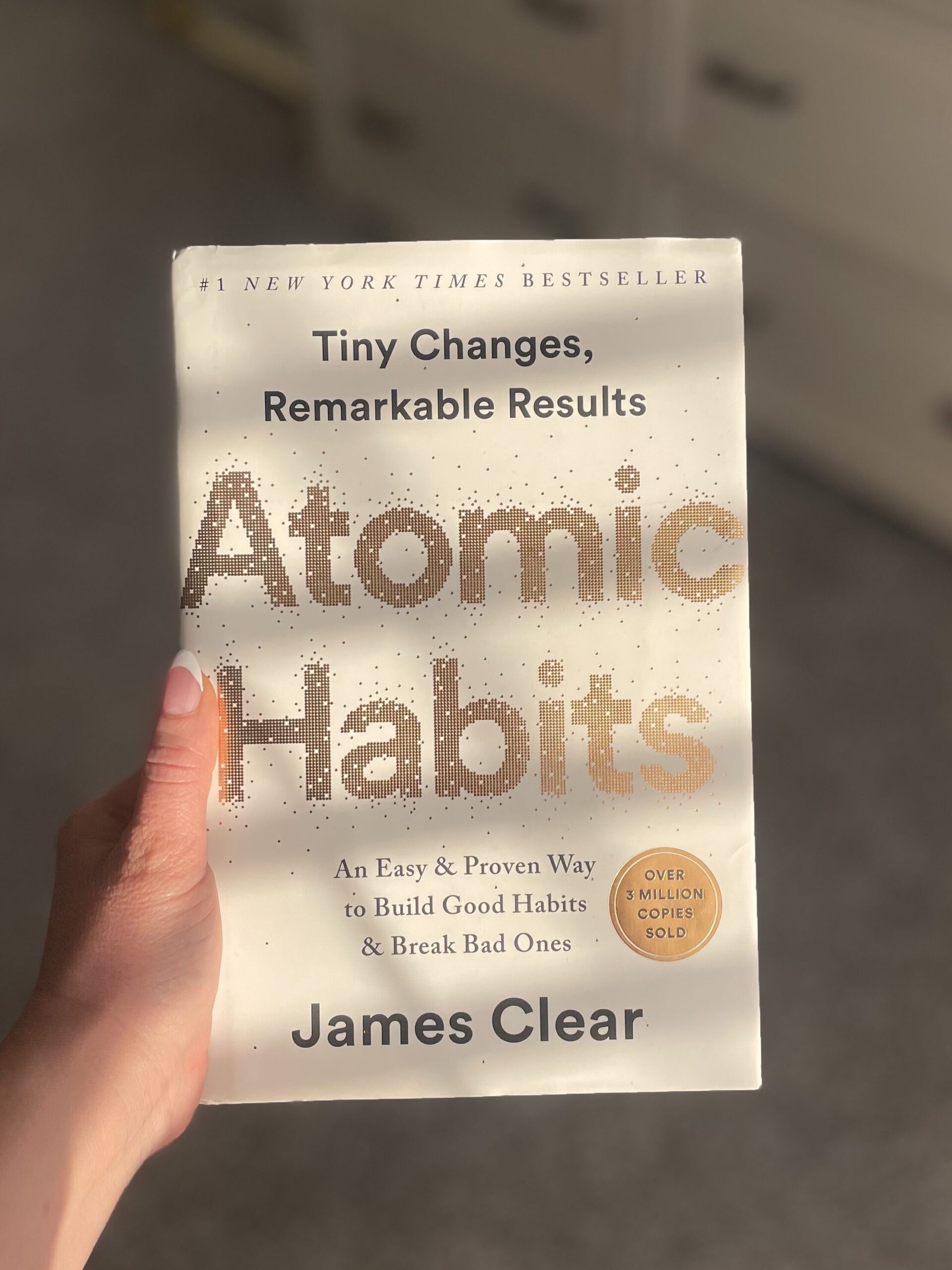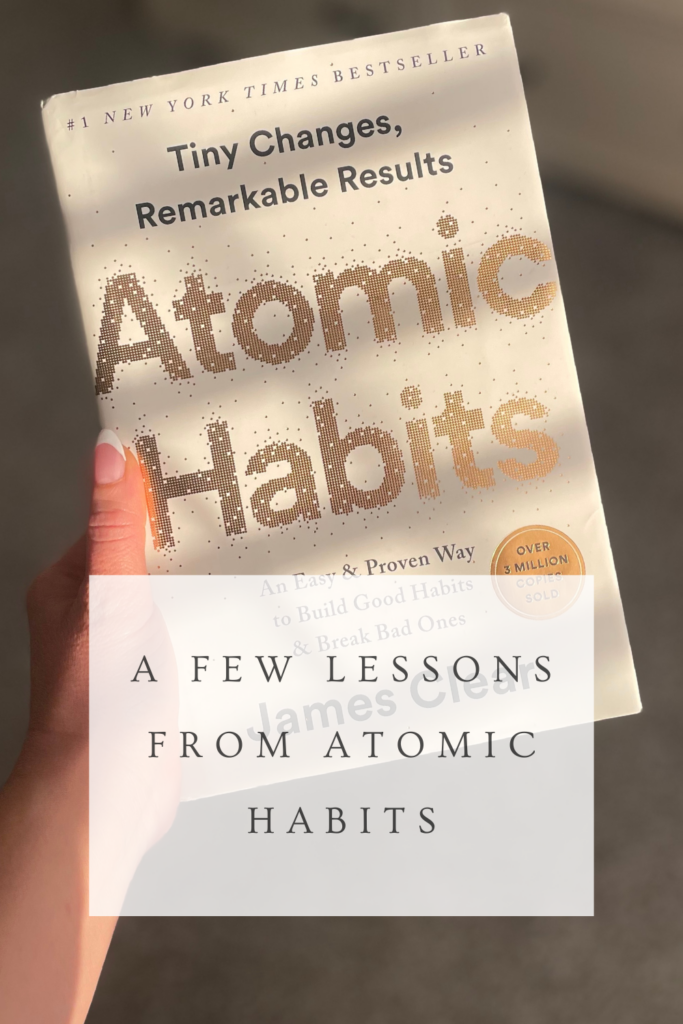
There is nothing that will make or break our future goals more than our habits. We don’t even realize that the majority of our day is filled with reactions that are programmed in our subconscious. From hitting snooze on the alarm 15 times, to needing a mid-afternoon chocolate bar after finishing a report, to driving to work and not thinking about how you got there, or reaching for a glass of wine after a stressful meeting… These are examples of habits so ingrained in our days that we can glide through life without thinking about them…
I would like to be more in control of my habits and am interested in self-optimization, so needless to say, I bought this book when it came on my radar a few years ago. There are so many useful nuggets, and James Clear lays out the theory and practical tools for habit formation or breaking. These are a few of the lessons that stood out to me…
“… When you have your habits dialed in and the basics of life are handled and done, your mind is free to focus on new challenges and master the next set of problems. Building habits in the present allows you to do more of what you want in the future.”
The biggest reason why we would want to create or break habits is so that we can automate mindless tasks, freeing ourselves to have more time and better health for other things, such as our hobbies or other things we love. Clear’s approach is to focus on the tiny changes you can make daily. Micro or ‘atomic’ habits collectively can transform into larger changes, either positive or negative. The key is to not focus on the end goal, but rather, on the tiny steps you can take toward improvement. Building on that philosophy, Clear outlines a simple four-step process for building habits:
- Make it obvious
- Make it attractive
- Make it easy
- Make it satisfying
Making a habit obvious means that it has to be in your face. If you want to start flossing daily, it won’t help you build a habit if the floss is put away deep inside your drawer. You should have it right next to your toothbrush in plain sight.
To make a habit attractive, it needs to be something that brings you joy. For example, if you want to start waking up earlier, have something that you know you will enjoy as the first part of your routine, such as a nice hot cup of coffee waiting for you when you get downstairs.
Making a habit easy is crucial. Say, you want to start going to the gym before work. Something you could do in order to make this habit easy is to lay out all the workout clothes the night before, have your pre-workout in the shaker, and get your work clothes ready to go for after your shower.
“Make it easy and you’ll find yourself doing it more often. Make it hard and you’ll find yourself doing it less. If you can automate the start of a habit, you’ll be much more likely to follow through on it.”
The fourth step is to make the habit satisfying. If you want to lose some weight, for example, you can reward yourself with a new article of clothing for every 10 lbs you lose. Every time you reach a milestone, treat yourself.
I’m trying to build a few habits myself. I have been trying to work out 3-4 days a week. Some of the ways I’ve tried to build this habit on an atomic level are pre-packing my gym bag, having my delicious pink lemonade protein powder ready to go so I have something to look forward to after the workout, and booking my class in advance so I have no choice but to go.
I am also trying to not impulsively spend money. To reverse a habit, you have to do the opposite of those 4 rules. I removed the Amazon app from my phone so I have to make a huge effort to log on. In doing that, I’ve made it less attractive and not easy at the same time because I have to find the app and remember my password. If I want something and I made it into the app, I put it in the cart but do not check out. The next day, if I still want it, I will consider it, but most of the time, I forget about my cart and that item.
If you haven’t read “Atomic Habits” yet, and you want to build better systems in your life, then I really recommend you read it. Building BIG overarching habits is a daunting task, but small, incremental changes to your life make the most amount of impact long term.
I’ll leave you with one last quote from the book:
“Every action you take is a vote for the type of person you wish to become.”
What positive habits do you reinforce for yourself? Any negative ones you’re trying to break? Comment below!





No Comments